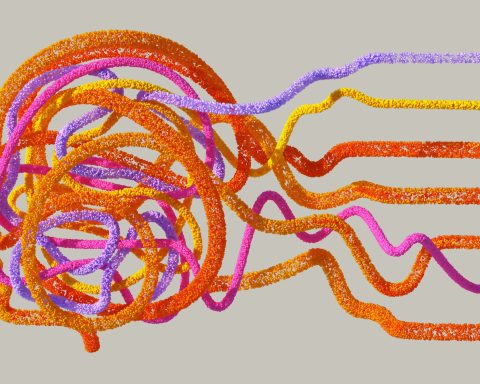 Vasumathy Sivarajasingam is a GP Partner at the Hillview Surgery and an Honorary Clinical Research Fellow at Imperial College London. Twitter: @vasu27765631.
Vasumathy Sivarajasingam is a GP Partner at the Hillview Surgery and an Honorary Clinical Research Fellow at Imperial College London. Twitter: @vasu27765631.
Climate change causes detrimental impact on our health and wellbeing — a public health emergency. Health care, public health, and the environment are linked, and action on climate change and sustainability would improve public health and equity.1 ‘Net zero’ is a global challenge that affects every society.
The NHS is a huge contributor to the UK’s carbon emissions, accountable for around 4%–5% of England’s carbon footprint2 — equivalent to all the planes taking off from Heathrow in an average year. It has declared its ambition to be the world’s first ‘net zero’ NHS, by 2040. Each and every one of us has a responsibility to limit global warming.
The NHS is a huge contributor to the UK’s carbon emissions, accountable for around 4%–5% of England’s carbon footprint …
Estimates of the carbon footprint in general practices suggest that 65%–90% is associated with pharmaceutical prescribing.3 Over 75 million inhalers with different drug and inhaler combinations and design characteristics (pMDI, DPIs, and nebulisers) are prescribed yearly in the UK4 for a variety of respiratory conditions, ensuring each patient has the best option. Addressing patient preference is essential (particularly the children, elderly, and those with conditions that may impact on handgrip and manual dexterity) as it enhances patient satisfaction, optimising adherence and improved quality of life.5
To prevent propellant gases, which are powerful greenhouse gases, escaping into the atmosphere then inhalers need to be safely disposed of.6 There is a significant environmental impact of inhaler use, both from the carbon footprint of propellants and plastic waste from discarded inhalers. Metered dose inhalers contain propellants that are greenhouse gases thousands of times more powerful than carbon dioxide — contributing to nearly 4% of the entire NHS carbon footprint and about 25% of the general practice prescribing carbon footprint.7
The plastic and aluminium parts should be recycled, and the harmful greenhouse gases thermally degraded into less environmentally damaging products. If all used inhalers in the UK were returned for safe disposal, this could save 512 330 tonnes of CO2eq annually — the same as a VW Golf car being driven around the world 88 606 times.8
A study by a major pharmaceutical company showed that 29% of inhalers disposed had leftover medication in them. If these inhalers go into a landfill, the medication will leak out and contaminate local water supplies.9 Inhalers ending up in landfill take centuries to biodegrade and in reality this process is not complete as microplastics are known to enter the food chain via this route.4
Safe disposal of inhalers
Patients usually receive instructions on how to use and store medications but rarely get proper information on the safe and appropriate ways to dispose of such medications.10 Little information is provided by the pharmaceutical companies, general practices, or pharmacies on how to properly dispose of the canisters, nor how to recycle the plastic components.11
Inhalers ending up in landfill take centuries to biodegrade …
Pharmacies can safely dispose of inhalers, but this is not routinely advertised to patients.4 Patients should be encouraged to return their expired, unwanted, or used inhalers to a pharmacy for safe disposal, as malpractice would lead to harmful consequences.
At Hillview surgery, we decided to conduct a study to understand the knowledge and practices of patients towards safe disposal of inhalers. To our knowledge, such a study has not been carried out in UK primary care.
Method
The study was carried out on patients contacting clinicians via face to face, telephone, or eConsult between 30 August 2021 and 27 September 2021. The patients were asked about their usage of inhalers (including name, device, medical condition, and duration of usage), inhaler disposal practice, current knowledge of recycling of the inhalers, and sources of information if aware of the recycling methods. A doctor, nurse, and pharmacy technician were involved in collecting the data. Responses were documented on a password protected spreadsheet for data analysis.
We took this opportunity to educate our patients on the importance of appropriate recycling of inhalers. Patients were advised to return their expired, unwanted, or used inhalers back to their local pharmacy for safe disposal. We also asked the patients if their practises of future inhaler disposal will change given the information about recycling.
Findings
One hundred patients were asked to comment on the method of disposal of their inhalers — used to control asthma, chronic obstructive pulmonary disease, and fibrosis — age range was 3–93 years, 44% were male (n = 44), and 56% female (n = 56). There were 16 children aged <10 years for whom the parent answered questions. Ninety-one per cent of patients used their inhalers for >6 months, the majority from childhood.
All responders confirmed they would return their unused, expired, or empty inhalers to their pharmacy in the future.
Of 100 patients, two recycled their inhalers correctly by giving back to the local pharmacy. Eighty-seven per cent (n = 87) were not aware that inhalers could be recycled and put their inhalers in the domestic bin. Eleven per cent (n = 11) put their inhalers in the domestic recycling bin, so had attempted recycling but were not aware that these inhalers would still end up in landfill. All responders confirmed they would return their unused, expired, or empty inhalers to their pharmacy in the future. Patients were surprised that such fundamental information was not shared by clinicians during consultations, or pharmacists during dispensing. Each and every patient acknowledged the importance of working together in achieving the NHS ambition — ‘do our bit’ for the environment however small it is.
Our study highlighted a lack of knowledge and understanding on safe disposal of inhalers among our patient population.
Engagement and empowerment of patients regarding the safe disposal of inhalers should be our priority. The plan is to share our findings with the whole team during our clinical and staff meetings. Our intention is to remind and educate our patients using inhalers of the safe disposal, at every opportunity. This is in addition to the routine medication review and as part of inhaler technique checks. An information sheet explaining the implications of inappropriate disposal of inhalers was produced by our asthma lead to share with patients — either via AccuRx, SMS, or leaflet depending on patient’s choice.
… pharmaceutical companies should encourage recycling on the packaging and every pharmacy should support inhaler recycling.
Going forward
Displaying information in waiting rooms, and posting on Twitter and the surgery website would further enlighten our patient population. Inhalers cannot be disposed of in the medical waste disposal box, pharmaceutical disposal box, or sharps container. Another option is to have a collection box in the waiting room that the pharmacy could use to safely collect and dispose of unwanted and used inhalers.
Schools should encourage children and parents to return their inhalers to local pharmacy. There should be more publicity on social media. Furthermore, pharmaceutical companies should encourage recycling on the packaging and every pharmacy should support inhaler recycling.5,12
Conclusion
General practice is ideally placed to introduce changes to become more environmentally sustainable. Safe disposal instructions should be provided by all healthcare providers in routine patient education. Primary care clinicians can easily provide instructions on how to dispose of the inhalers when prescribing and issuing prescriptions.
Persistent education of our community will no doubt heighten the understanding of the importance of appropriate recycling of inhalers. This could potentially encourage patients to prompt their personal contacts and contribute towards increasing public awareness of the consequences of global warming.
References
1. Bhatti S. Embracing ‘net zero’ to reduce the impact of climate change on public health. 2021. https://blogs.deloitte.co.uk/health/2021/07/embracing-net-zero-to-reduce-the-impact-of-climate-change-on-public-health.html (accessed 30 Sep 2021).
2. NHS Digital. Greener NHS campaign to tackle climate ‘health emergency’. 2020. https://www.england.nhs.uk/2020/01/greener-nhs-campaign-to-tackle-climate-health-emergency (accessed 30 Sep 2021).
3. British Medical Association. Sustainable and environmentally friendly general practice: GPC England Policy Document. 2020. https://www.bma.org.uk/media/2570/bma-sustainable-and-environmentally-friendly-general-practice-report-june-2020.pdf (accessed 30 Sep 2021).
4. De Vos R, Rupani H, Longstaff J, et al. Inhaler recycling prevalence in a secondary care clinic in England. Eur Respir J 2020; 56(Suppl 64): 1886. DOI: https://doi.org/10.1183/13993003.congress-2020.1886.
5. Usmani OS. Choosing the right inhaler for your asthma or COPD patient. Ther Clin Risk Manag 2019; 15: 461–472. DOI: https://doi.org/10.2147/TCRM.S160365.
6. Greener Practice. Inhaler disposal and recycling. https://www.greenerpractice.co.uk/inhaler-recycling (accessed 30 Sep 2021).
7. Greener Practice. Asthma care and inhalers. https://www.greenerpractice.co.uk/inhaler-switch (accessed 30 Sep 2021).
8. Recyclenow. What to do with inhalers. https://www.recyclenow.com/what-to-do-with/inhalers-0 (accessed 30 Sep 2021).
9. Brenner B. What do I do with old inhalers? 2016. https://www.medprodisposal.com/pharmaceutical-disposal/what-do-with-old-inhalers (accessed 30 Sep 2021).
10. AlAzmi A, AlHamdan H, Abualezz R, et al. Patients’ knowledge and attitude toward the disposal of medications. J Pharm (Clairo) 2017; DOI: https://doi.org/10.1155/2017/8516741.
11. Oxley J. Asthmatic inhalers: reduce, reuse and recycle. BJGP Life 2020; 5 Oct: https://bjgplife.com/2020/10/05/asthmatic-inhalers-reduce-reuse-and-recycle (accessed 30 Sep 2021).
12. Thomas B, Sukumaran P, George D, et al. Are we handling used metered dose inhaler canisters safely? – A call for action to address an environmental hazard. IP Indian J Immunol Respir Med 2019; 4(1): 24–26. DOI: https://doi.org/10.18231/2581-4222.2019.0006.
Featured photo by Possessed Photography on Unsplash







https://pagead2.googlesyndication.com/pagead/js/adsbygoogle.js
(adsbygoogle = window.adsbygoogle || []).push({});
Reducing greenhouse gas emissions and material waste from harming the environment
PETALING JAYA, Malaysia, June 23, 2022 /PRNewswire/ — GSK Malaysia is committed to its long-term ambition of delivering net zero emissions across all operations by 2030. By striving to reduce its environmental impact, GSK Malaysia announced the launch of its very own Environmental, Social and Governance (ESG) campaign called #GiveBack, focusing on safe and responsible disposal of old and used inhalers.
Mr David Lin, Director of Communications, Government Affairs & Strategic Customer Solutions at GSK Malaysia & Brunei and Ms Liew Chui Ying, Chief Marketing Officer of Big Pharmacy Healthcare Sdn Bhd sign an MOU at the launch of the #GiveBack campaign
#GiveBack is held through collaborative working with over 50 outlets of Big Pharmacy across the Klang Valley and Seremban and will soon be extended to a nationwide campaign. During this pilot phase of the campaign, patients are encouraged to drop off their used, unwanted or expired inhalers at participating pharmacies to help reduce plastic waste and the adverse effects that the propellant has on the environment.
In a next phase of the campaign, GSK is looking into the feasibility of having the collected inhalers recycled into materials that can be repurposed, such as materials for local artists to create art installations. GSK Malaysia is keen on collaborating with many social enterprises that share similar ESG values.
Jonathan Pan, Vice President & GM of GSK Malaysia said, “The programme has already been conducted in the UK and will help pave the way for a more environmentally sustainable treatment of respiratory diseases in Malaysia. By 2030, we hope to create an impact that results in major savings in terms of material waste and carbon emissions.”
A population survey conducted in Malaysia revealed that nearly two-thirds of asthma patients (60.5%) have limited health literacy levels associated with improper use of inhalers and poor knowledge of asthma. Asthma is found to be given less importance than other long-term diseases in Malaysia such as diabetes, coupled with a lack of funding and attention from a health policy point of view[1].
The use of inhalers leaves a significant impact to the environment. Pressurized metered-dose inhalers (pMDI) with 10g of propellant can leave a carbon footprint of 13-33kg[2]. These propellants are greenhouse gases, which are a thousand times more powerful than carbon dioxide[3]. Evidence suggests that 7 out of 10 inhalers are discarded before its completely empty and majority inhalers are disposed as general waste, thereby allowing these potent greenhouse gases to leak and contaminate local water supplies, and also contribute to global warming[4].
Asthma is one of the most common non-communicable diseases in Southeast Asia. More than 73% of outpatient health clinic visits are for respiratory symptoms, among which many are asthma related[5]. It is estimated that there are between 1.6 to 2 million people suffering from asthma in Malaysia and according to the National Health and Morbidity Survey in 2011, the prevalence of self-reported or medically diagnosed asthma in Malaysia was 6.4%[5].
https://pagead2.googlesyndication.com/pagead/js/adsbygoogle.js
(adsbygoogle = window.adsbygoogle || []).push({});
Mr Lee Meng Chuan, Chief Executive Officer of Big Pharmacy Healthcare Sdn Bhd shares his thoughts on the campaign. He said, “GSK’s #GiveBack initiative is a very meaningful project and does more than just providing a solution for patients to responsibly dispose their inhalers. Pharmacists have a chance to discuss the patient’s medicine usage and encourage them to return their used inhalers to unlock the potential for improved patient outcomes and contribute to a greener environment for everyone.”
GSK topped the pharmaceutical industry for 2021 in the Dow Jones Sustainability Index (DJSI). This attests to the fact that ESG factors are an integral part of GSK’s overall strategy. GSK has maintained its acknowledged leadership in ESG, and this continues to be a key driver in its goal to deliver health impact.
Having been one of the first pharmaceutical companies to set ambitious environment targets in 2010, GSK has since reduced 34% carbon emissions, 78% waste in landfills and 31% water usage. By 2030, GSK aims to reach net zero impact on climate and net positive impact on nature[6].
For further information, please visit http://www.gsk.com
[1] Salim, H., Shariff Ghazali, S., Lee, P.Y. et al. Health literacy levels and its determinants among people with asthma in Malaysian primary healthcare settings: a cross-sectional study. BMC Public Health 21, 1186 (2021). https://doi.org/10.1186/s12889-021-11194-w
[2] Nursing Times. 2020. Sustainability 3: how nurses can reduce the environmental impact of inhalers | Nursing Times. [online] Available at: https://www.nursingtimes.net/clinical-archive/respiratory-clinical-archive/sustainability-3-how-nurses-can-reduce-the-environmental-impact-of-inhalers-24-08-2020/
[3] Bjgplife.com. 2021. Understanding patients’ knowledge of inhaler recycling – BJGP Life. [online] Available at: https://bjgplife.com/understanding-patients-knowledge-of-inhaler-recycling/
[4] Roome C, Bush O, Steinbach I, et al562 Reducing the environmental impact of inhaler use and disposal within paediatrics and the local community. Archives of Disease in Childhood 2021;106:A41-A42.
[5] Poh, M. E., Ampikaipakan, S., Liam, C. K., Chai, C. S., Ramanaidoo, D., & Haja Mydin, H. (2021). Management of Asthma Exacerbations in Southeast Asian Tertiary Care. Journal of asthma and allergy, 14, 629–640. https://doi.org/10.2147/JAA.S309143
[6] 2022. [online] Available at: https://www.gsk.com/media/7223/gsk-esg-infographic.pdf
[…] [3] Bjgplife.com. 2021. Understanding patients’ knowledge of inhaler recycling – BJGP Life. [online] Available at: https://bjgplife.com/understanding-patients-knowledge-of-inhaler-recycling/ […]
[…] [3] Bjgplife.com. 2021. Understanding patients’ knowledge of inhaler recycling – BJGP Life. [online] Available at: https://bjgplife.com/understanding-patients-knowledge-of-inhaler-recycling/ […]